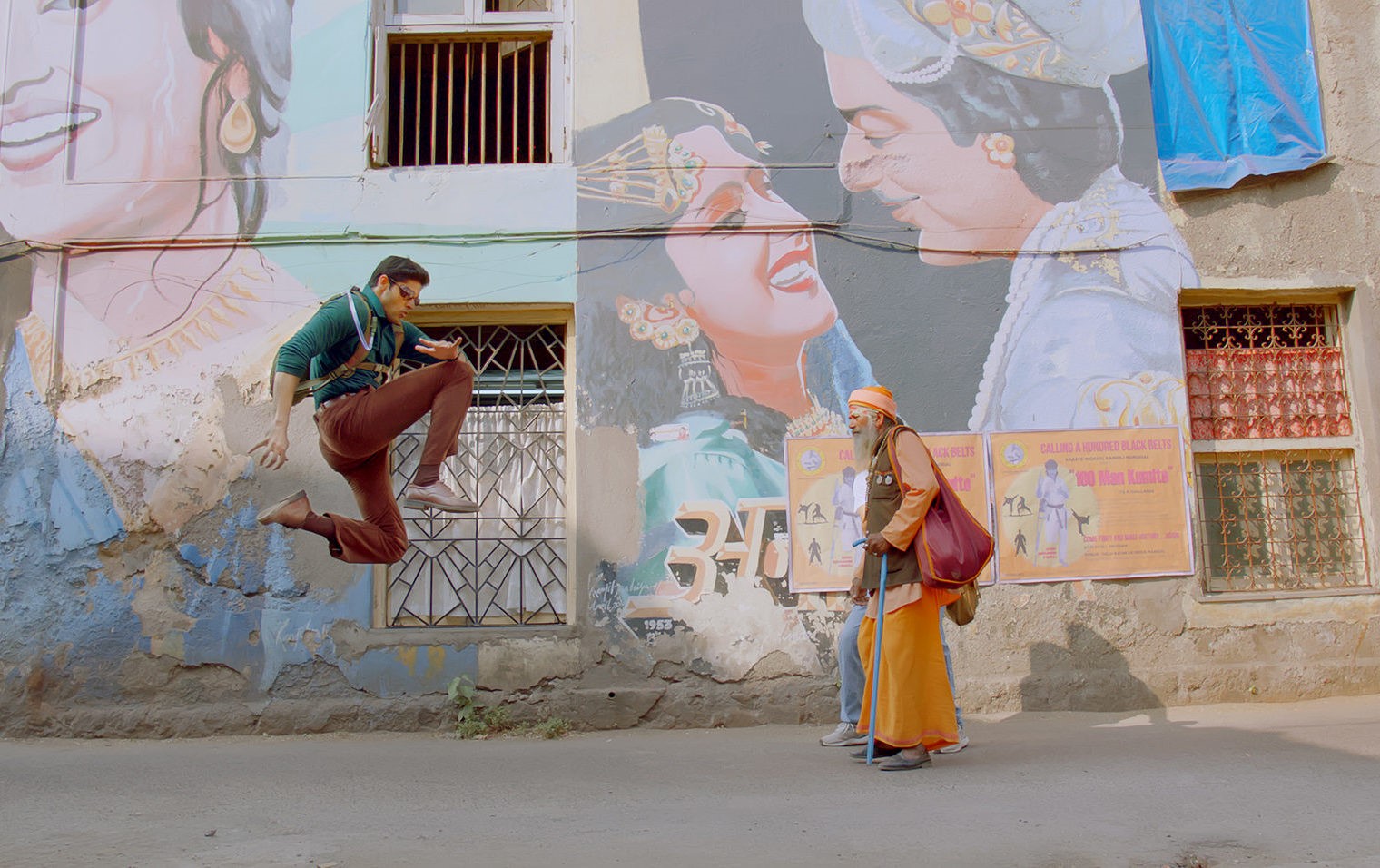Review by Dr Khalid Ali, film and media correspondent
‘The Man Who Feels No Pain’ (Mard Ko Dard Nahin Hota), Vasan Bala, India 2018
Showing at the London Indian Film Festival (http://londonindianfilmfestival.co.uk/)
The Bagri Foundation London Film Festival celebrates a decade of bringing the best new South Asian films to the UK. The festival will tour London, Birmingham and Manchester from 20th June till 8th July and will show 25 specially curated films.
Watch the festival trailer here
One of the highlights of the festival is ‘The man who feels no pain’, which won the ‘People’s Choice Award: Midnight Madness’ in Toronto International Film Festival 2018. The film opens with a voice over contemplating: “Behind every mind-blowing story are pretty bad decisions”. The director’s decision to explore ‘the nature of pain’ and how it shapes people’s lives is definitely not a ‘bad decision’; perhaps it was an inspired one.
If one asks a post-operative patient, a cancer patient undergoing chemotherapy or someone receiving end of life care: ‘what is the one thing you would want to get rid of?’, most of them would say ‘pain’. Pain is synonymous with suffering; as vulnerable human beings, we do not want to experience physical or emotional pain. Surya (Abhimanyu Dassani), the film protagonist, is a child who cannot feel pain, having been born with the rare inherited condition ‘Congenital insensitivity to pain’ (CIP). Theoretically this could be a blessing for a young child to engage in daring stunts to impress his peers. However, being unaware of pain from trauma or burns can render its patient at risk of fractures and unnoticed infections, with most patients dying at young age. Aajoba (Mahesh Manjrekar), Surya’s grandfather, becomes his in-house physician and mentor; he teaches him how to handle the mixed curse / blessing by pretending to be in pain if physically bullied in school. Self-protection and survival skills are essential to thrive in a world full of ‘bullies’. The inevitable injuries and broken bones still happen, and Surya spends a lot of time recovering at home. Aajoba introduces Surya to the world of martial arts gurus in ‘VHS films’, most notably Bruce Lee. However Surya idolises only Mani (Gulshan Devaiah), the one-legged karate master who can defeat 100 fighters single-handedly. Surya’s lonely existence is transformed when he meets Supri (Radhika Madan), a young feisty girl who practices martial arts to defend herself and friends. Surya and Supri embark on a journey of self-discovery as self-declared super heroes standing up to the local baddies; a modern day Indian version of ‘Avengers United’ fighting violence and corruption in the neighbourhood.
Combining elements of ‘the superhero film formula’ in stylised action sequences with a buddy movie narrative, a romantic comedy and a coming-of-age tale is no mean feat. Film director Vasan Bala handles these diverse film genres with warmth and wit, helped tremendously by endearing performances from the three leads.

The light hearted theme of ‘heroes vs villains’ is juxtaposed with more serious philosophical arguments; management of chronic health condition, physical disability, advancing age, frailty, and mortality are all there for the discerning viewer.
In Surya’s transition from a sheltered boy to a neighbourhood hero, he champions ‘self-management’ in patients taking control of their own illness as key qualities to sustainable well-being. Delivered with quirky humour, the film does not trivialise Surya’s agony; his longing to be ‘normal’ and to experience pain is sensitively portrayed. His isolation and loneliness after the tragic death of his mother is livened by his fascination with ‘80’s karate masters in film’. Surya’s illness forces him to be an outsider. But for each loner, there is a kindred spirit waiting out there; for each ‘Surya’, there is a ‘Supri’.
It is not surprising that the film won the audience award in Toronto Film Festival with its clever mix of nostalgia, pop-culture references, and conviction that ‘good always wins’. By having the right frame of mind, and ongoing family and peer support, the most incapacitating health condition can be conquered.